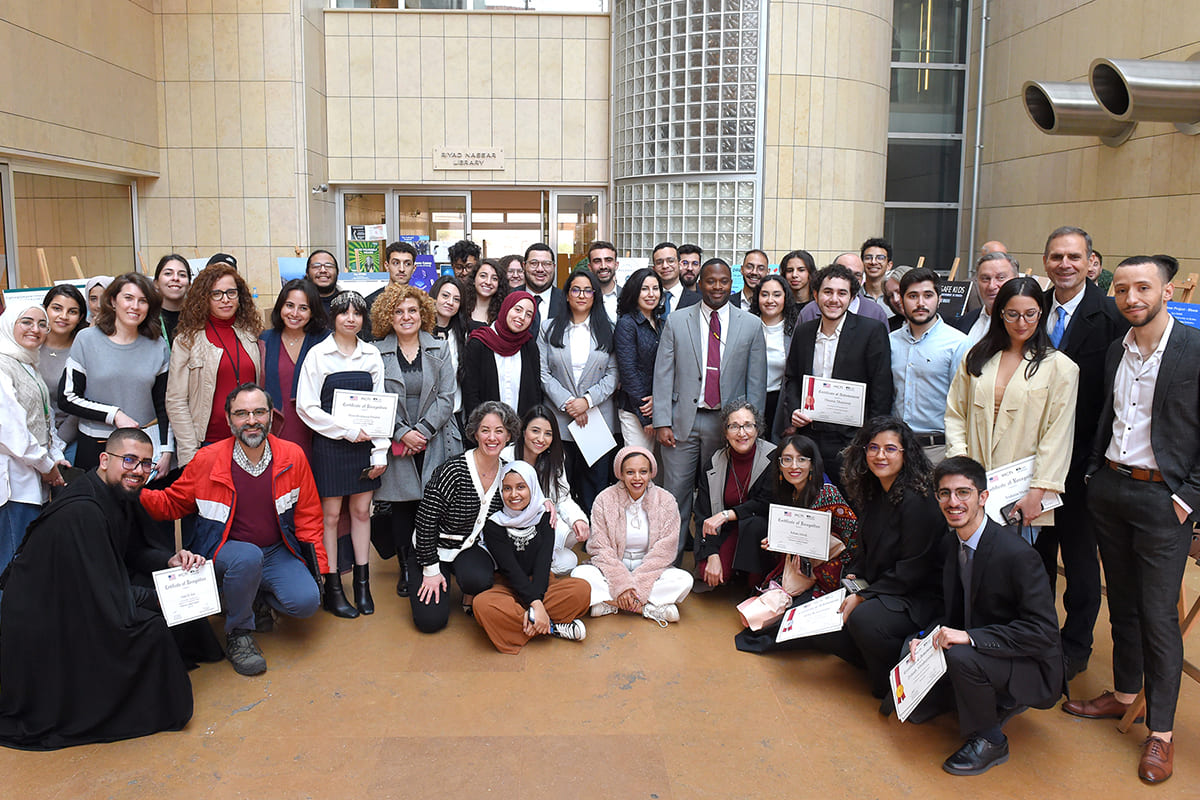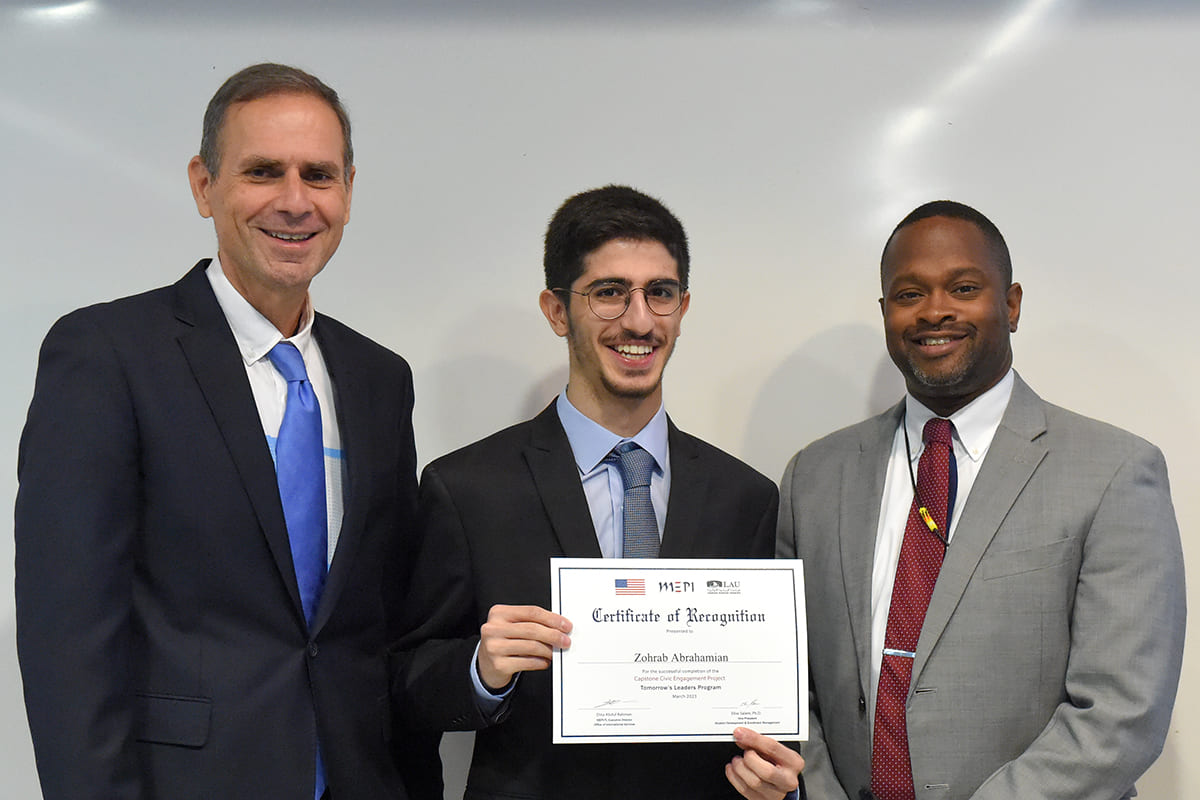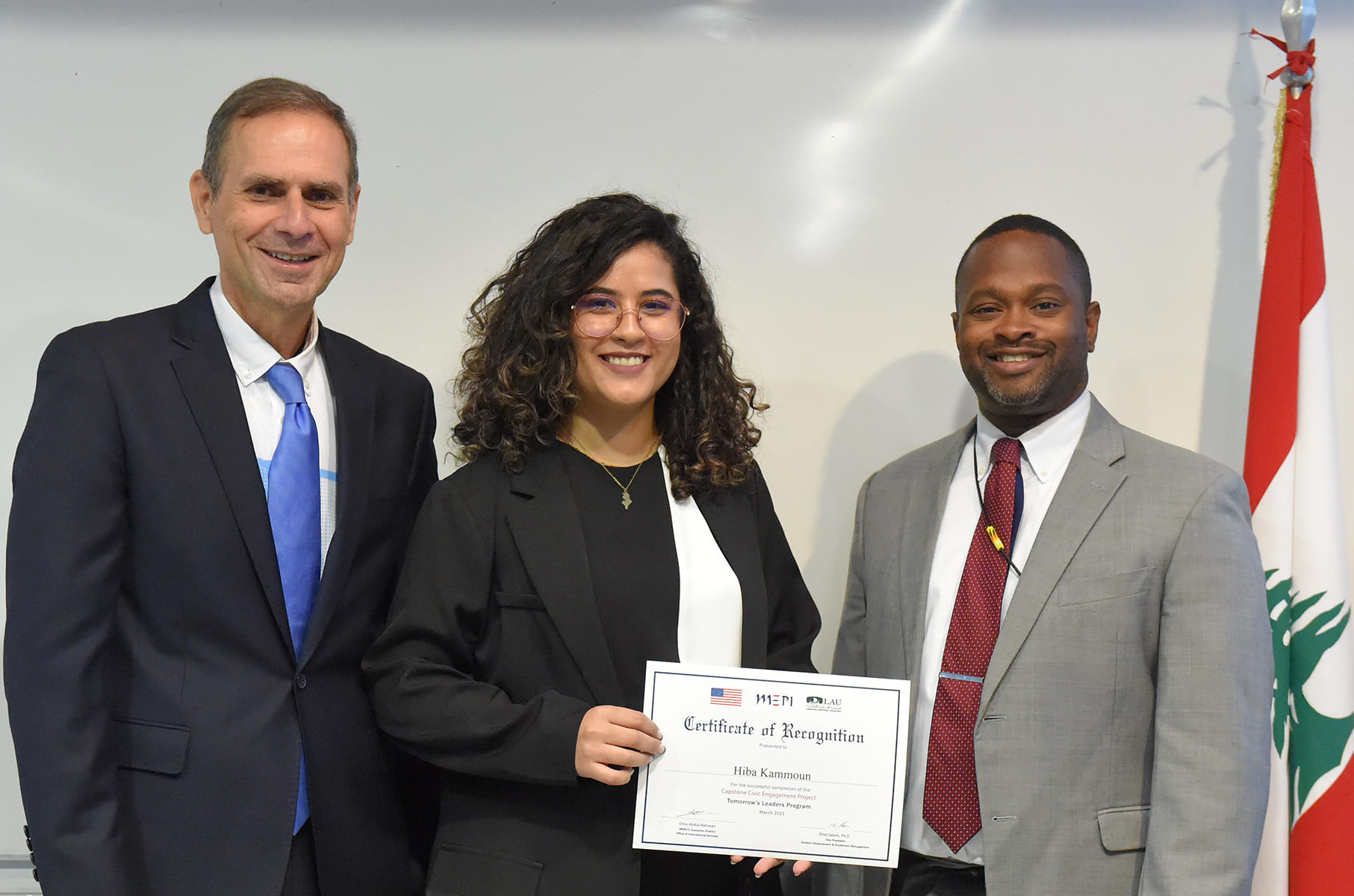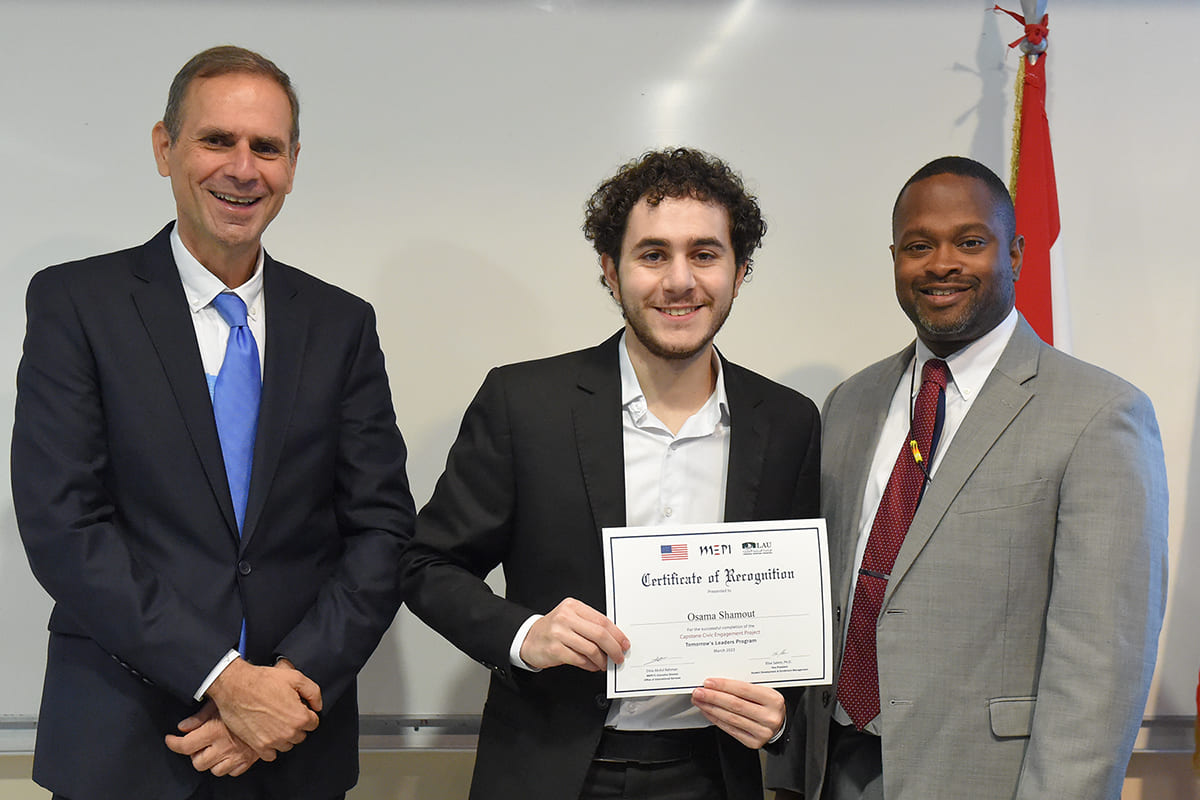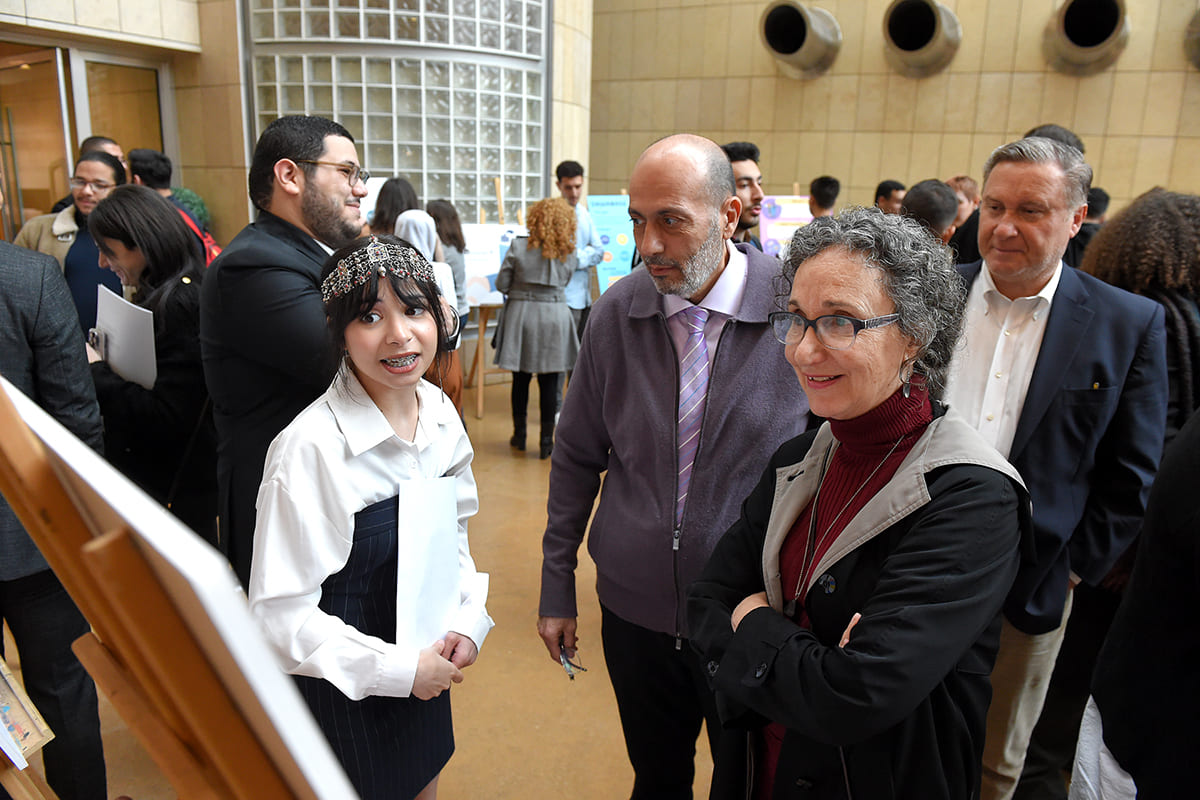Capstone Presentations Widen the Sense of Possibility
As they gear up for graduation, MEPI-TLers dream up – and plan for – a better Arab World.
Enthusiastic, passionate and determined to make a change, twenty-three US Middle East Partnership Initiative (MEPI) Tomorrow’s Leaders (TL) undergraduate scholars filled the air with positive vibes on the Beirut campus as they pitched their ideas to faculty, staff, peers and jury members for the annual MEPI-TL Capstone Presentation Day.
Hailing from Algeria, Jordan, Morocco, Tunisia, Syria, Egypt and Lebanon, the students had designed and devised a plan for a community development project that addresses a social, political, environmental, educational or cultural challenge in their home country.
The day was a “culmination” of their journey, said MEPI-TL Executive Director Dina Abdul Rahman, “through which they demonstrated the many different skills they nurtured throughout the program at LAU, including entrepreneurial, leadership, civic engagement, critical and creative skills, public speaking, research and proposal writing, among others.”
Building on this thought, Associate Professor of Computer Science and MEPI-TL Capstone Project Coordinator Ramzi Haraty offered a view of a student leader as “one that strives to spread knowledge and builds toward a new world, starting in his or her home community.”
The projects the students had started working on almost a year ago, said Dr. Haraty, “attest to the different skills that we had instilled in them,” with the faculty mentors encouraging them “to think outside the box, turn ideas into goals, learn, innovate and be creative.”
The scholarship program would not have been possible without the generous support of the American people, through MEPI – an LAU partner for the past 14 years. The cultural exchange between MEPI-TLers on the one hand, and among their peers from the rest of the LAU student body, has created an enriching diversity that many of the scholars and their colleagues acknowledge and value. Apart from tuition fees, the scholarship covers board, living expenses, training and study abroad opportunities.
Speaking at the event, MEPI Coordinator at the US Embassy David Lewis expressed his pride in the scholars’ output. “We hope that you graduate better prepared to leave an impact in your home countries,” he said, thanking the cohort for their hard work and dedication to the program.
Before announcing the winning projects, Associate Professor of Mathematics and MEPI-TLU Academic Director Samer Habre thanked the scholars’ faculty advisors Mariam Shebaya, Berna Rahi and Nazareth Nicolian, for their dedicated, year-long mentorship of the students. He also acknowledged the jury members: Lewis, LAU Assistant Professor of Computer Science Nadine Abbas and MEPI-TL alumna Diditta Rizk (BS ’22).
Biology major Zohrab Abrahamian won first place for his project “Towards a Greener Lebanon,” which tackles several ongoing problems in Lebanon such as unemployment, poverty, waste mismanagement and pollution. Through it, he proposes a sustainable, zero-waste strategy for local farmers to sell their harvest, while using any food waste and recyclable material as packaging.
Hiba Kammoun’s “Wise Institute,” which placed second, promotes sexual education, bodily rights and autonomy through customized training tailored for Tunisian youth. She was inspired by her own volunteer experience at a women’s shelter in the US as part of an exchange program and wanted to bring this opportunity to the Arab World.
“My Pal,” by Osama Shamout proposes an app that connects youth and encourages them to interact offline by volunteering together for community-service projects, thereby enticing young people to disconnect from the digital world and help others. His idea came third. A computer science major, Shamout credited the program for “helping him connect the dots and notice the patterns in everything around me.”
The winning scholars will be attending the Tomorrow’s Leaders Graduate Conference at the American University in Cairo, due to take place in June.
